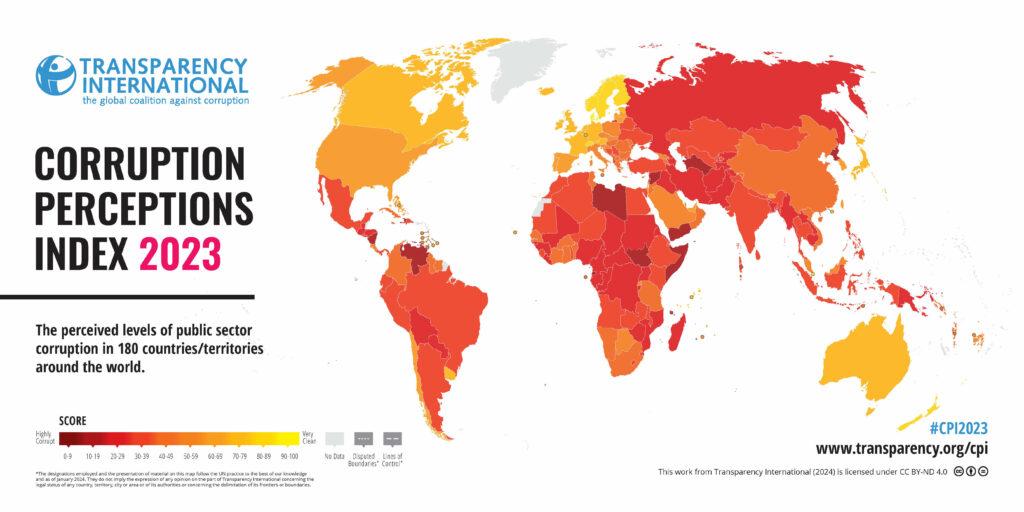ATLANTA (Pajhwok): The government of Islamic Emirate of Afghanistan has rejected the latest report from the Transparency International on corruption in the country.
The Berlin-Based organisation released its annual report for 2023 — the Corruption Perception Index (CPI) — in which Denmark was ranked the least and Somalia the most corrupt countries.
Afghanistan has fallen back by four points in the rankings. The report is based on surveys and questionnaires about corruption in 180 countries.
Somalia has once again been announced as the most corrupt among the countries survey by TI, which was founded in 1985.
A country that gets zero marks is the most corrupt in the world, and one that gets 100 marks is the cleanest.
Among the corrupt countries, IEA-ruled Afghanistan which has been ranked 171st among 180 countries in terms of corruption.
Afghanistan obtained only 20 points in the 2023 rankings, compared to 24 a year earlier.
The provision of justice and the implementation of law play an important role in countering corruption at domestic and international level, the TI said in its report.
However, the interim government of Islamic Emirate of Afghanistan (IEA) rejected the Transparency International’s report.
IEA spokesman Zabihullah Mujahid wrote on his X handle: “Afghanistan is a corruption-free country and is in 162nd position, which is a good performance, compared to the previous year …”
In terms of governance; he said, it did not mean that corruption had increased in Afghanistan. The level of transparency in other countries may have improved.”
The report identified Somalia, Venezuela and Syria as the most corrupt countries and Denmark as the cleanest one.
Yemen, South Sudan, Nicaragua, North Korea, Haiti, Equatorial Guinea and Turkmenistan were also are also among the graft-tainted nations.
In Denmark, Finland and New Zealand, graft levels fell most dramatically last year. Norway, Singapore, Switzerland, the Netherlands, Germany also fared well.
The Transparency International called the rule of law and justice the two most important pillars of democracy, whose absence could have cause negative consequences.
Of the 180 countries of the world, only 18 have introduced reforms over the last 12 years, to fight the menace and achieved success.
aw/mud
Note: Some input from VOA has been used in this report.








GET IN TOUCH
NEWSLETTER
SUGGEST A STORY
PAJHWOK MOBILE APP